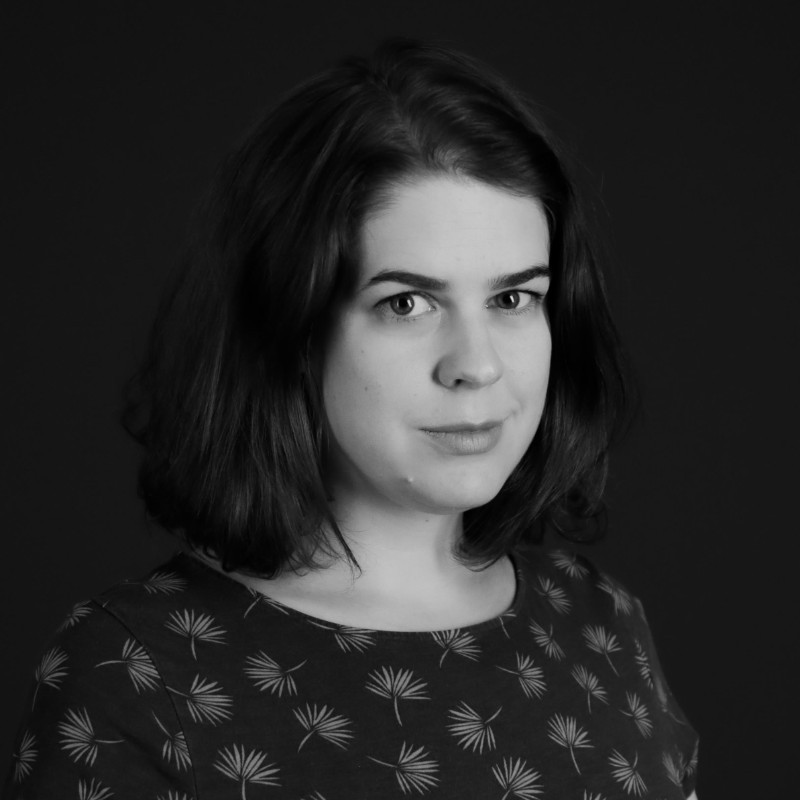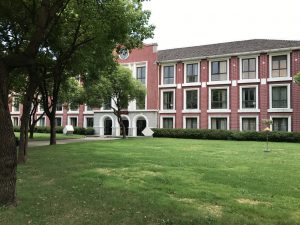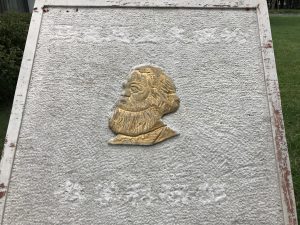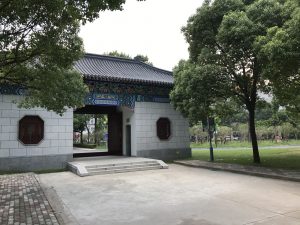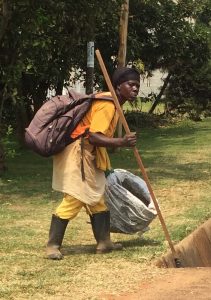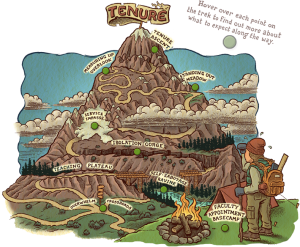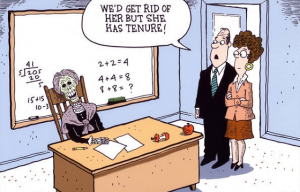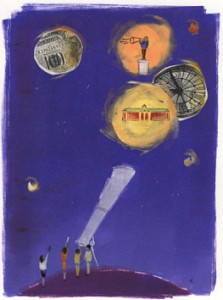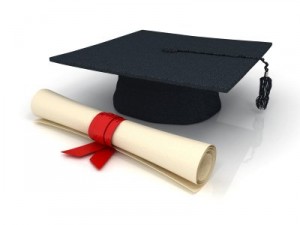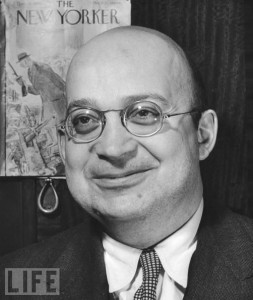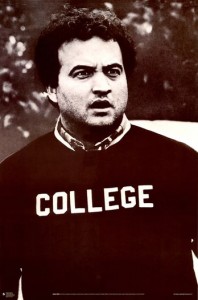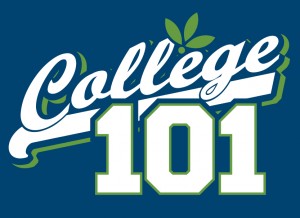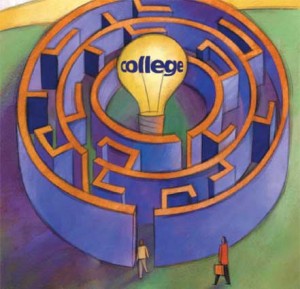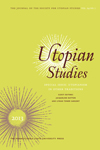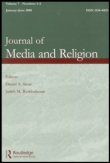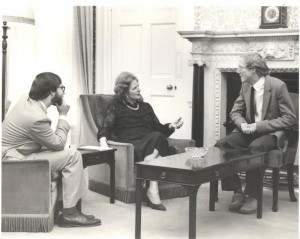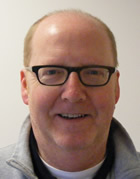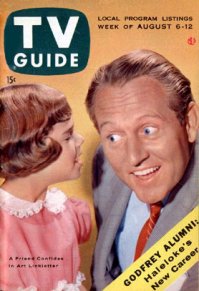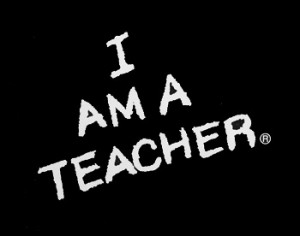“If liberty means anything at all, it means the right to tell people what they do not want to hear,” George Orwell famously said.
That, of course, is just one of innumerable quotes about free speech. Another handy one, attributed to George Washington, warns: “If freedom of speech is taken away, then dumb and silent we may be led, like sheep to the slaughter.”
My favorite, however, comes from Oscar Wilde. His riff on a noted comment from S.G. Tallentyre was: “I may not agree with you, but I will defend to the death your right to make an ass of yourself.”
Lately, lots of speakers — and many who would prefer not to hear them — have either been making asses of themselves or – depending on one’s viewpoint – prompting profound questions. Consider the infamous March 9 flap at Stanford Law School, where hecklers shouted down a conservative judge, who then was criticized by the school’s associate dean for diversity, equity and inclusion.
First, let’s grant that this was not so much about speech – really – but about a person the students deemed beyond the pale.
The noisy students weren’t furious about the subject of Appeals Court Judge Kyle Duncan’s comments – which dealt with guns, Covid and Twitter. Instead, they were offended by his record, which included defending Hobby Lobby against requirements that it provide contraceptive healthcare benefits to employees; his criticism of Obergefell v. Hodges, the U.S. Supreme Court decision that recognized a constitutional right to same-sex marriage, as an “abject failure” that “imperils civic peace,” as well as his defense of Louisiana’s gay-marriage ban before the Supreme Court and his defense of a North Carolina law keeping transgender people out of their preferred bathrooms.
They were troubled that Duncan, a Trump appointee, had denied a transgender woman’s request to be called “she” or “her.”
But all of it – both Duncan’s appearance and the student outrage – smacked of being a setup, an orchestrated affair more reminiscent of a WWE bout than an academic gathering. His visit, at the invitation of the university chapter of The Federalist Society, was tailor-made for controversy — and it began early.
Beforehand, students posted flyers warning that Duncan advocated for laws that “would harm women, LGBTQ+ people and immigrants,” as The Stanford Daily reported. Students in the organizations OutLaw and Identity and Rights Affirmers for Trans Equality (IRATE) asked the society to cancel his event or move it to Zoom. Their email said: “While acknowledging your right to freely associate with speakers and gain mentorship from those you choose, we are writing to express specific concerns about the effect of bringing this person into our campus community…”
After the society refused the request, Duncan’s visit did not disappoint those who expected a brawl. As the school paper reported, Duncan’s critics outnumbered Federalist Society members. The paper reported that his opponents “brought posters condemning him; some also had trans flags painted on some of their cheeks. Short speeches about how Duncan’s actions are harmful to many communities were made by protest leaders and the protesters shouted call and response chants, including, ‘When our trans neighbors are under attack, what do we do? Stand up, fight back!’”
For his part, Duncan seemed to relish the attention, even as the specific attacks infuriated him. A lawyer who posted his views of the event on Substack noted that Duncan “walked into the law school filming protesters on his phone.” When asked if he tried to record, Duncan responded with, “Damn right I did. I wanted to make a record.” And, in his opening remarks, the judge said: “I’m not blind — I can see this outpouring of contempt.”
Hecklers made it difficult for Duncan to speak, so much so that DEI Associate Dean Tierien Steinbach stepped in. As reported by Bloomberg Law, she told Duncan: “Your advocacy, your opinions from the bench, land as absolute disenfranchisement of their rights,” referring to the students. But Steinbach also defended free speech, even as she questioned whether his provocations were worthwhile. She said she “wholeheartedly” welcomed Duncan to campus, but told him, “For many people here, your work has caused harm.” Twice Steinbach asked, “Is the juice worth the squeeze?” seeming to question if he believed his speech was worth the reaction.
Despite her attempt at even-handedness, right-wing outlets demanded Steinbach’s firing. While they appear not to have gotten that, Steinbach has gone on leave (voluntarily or otherwise). The conservatives also won an apology, with criticism of Steinbach, from Law School Dean Jenny S. Martinez and university president Marc Tessier-Lavigne. Indeed, the dean mandated a half day of special free speech training for law students.
Now, as The New York Times reported, Martinez released a lawyerly 10-page memo that rebuked the activists. “Some students might feel that some points should not be up for argument and therefore that they should not bear the responsibility of arguing them,” she wrote. But, she continued, that “is incompatible with the training that must be delivered in a law school.” She added, “I believe that the commitment to diversity, equity and inclusion actually means that we must protect free expression of all views.”
But does she really mean “all views?” Would one of the many neo-Nazis riling America be welcomed to speak at Stanford? Would a KKK leader be cordially invited? How about a zealous homophobe?
The debate over free speech roiling so many campuses now seems to come down to what speech goes beyond the pale, or more properly, which speakers do. Duncan has standing, of course, because of his role as a judge. But should his positions on such matters as whether to call a transgender woman “she” put him over the line of acceptability?
Mores are moving fast these days, perhaps too fast for some conservatives. But remember that there was a time when eugenicists were acceptable on campuses. Indeed, some venues encouraged flagrantly racist and anti-Semitic academics to publish, speak and teach their views. Has the line simply moved too far for some?
As they exercised what critics called “the heckler’s veto,” there’s no question that the students behaved badly. The fact that they were law students who will need to trade and tolerate views with civility in the most potentially heated courtroom situations makes it worse.
But did Duncan serve the cause of civil discourse well by calling one critic “an appalling idiot” as he left the classroom and later calling his hecklers “bullies” and “hypocrites?” Later, in a Wall Street Journal op-ed, he doubled down, writing “They are, and I won’t apologize for saying so. Sometimes anger is the proper response to vicious behavior.”
Indeed, one wonders how much Duncan is basking in the attention his appearance provoked. As a opinion-writer at The San Francisco Chronicle wrote: “No matter who you think behaved worse here, the answer doesn’t matter for Duncan, because he got what he wanted: fame.” Referring to a Slate writer’s comments, he added, “it’s hard not to view Duncan’s performance as a not-so-subtle audition for the next Supreme Court vacancy that arises under a Republican president.”
Like it or not, free speech has limits and, if nothing else, simple decorum demands restraint even when it’s most difficult. The problem today is we don’t know what the limits are yet. Almost certainly, l’affaire Duncan will not be the last test of them.





